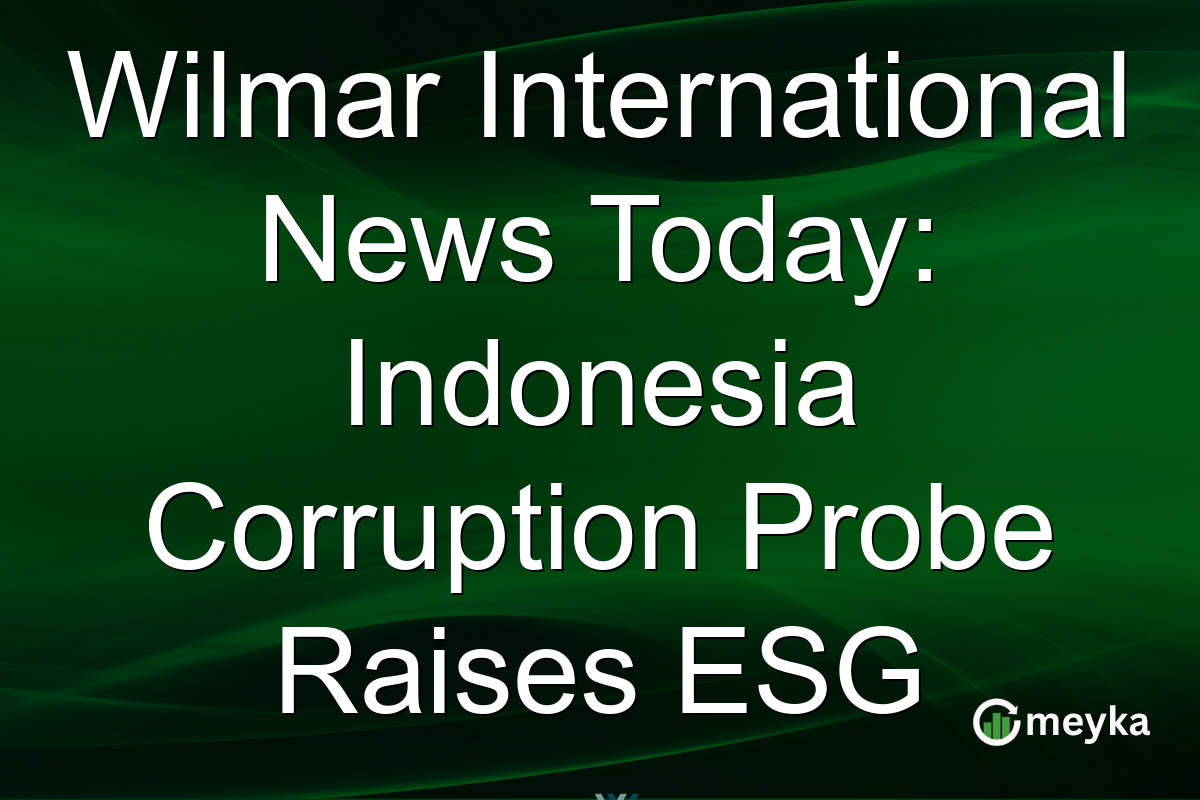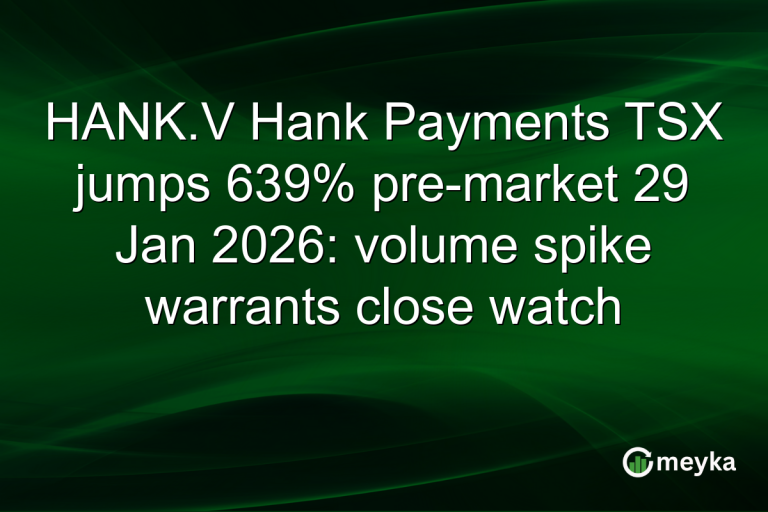Wilmar International News Today: Indonesia Corruption Probe Raises ESG
Wilmar International, a leading name in the global agribusiness sector, is under scrutiny following a reported corruption probe by Indonesian authorities. This investigation targets alleged unethical practices within the palm oil sector, a significant area of concern given the industry’s history of environmental and social challenges. The probe has put Wilmar International’s stock, traded under F34.SI, in the spotlight, prompting a reassessment of their ESG (Environmental, Social, and Governance) standards by investors. As of now, the stock shows a slight decline, trading at S$2.85 after a 1.38% drop. This situation comes amid broader questions about the transparency and ethical standards of palm oil operations, spotlighting Wilmar Indonesia corruption and driving concerns over ESG compliance.
Impact of the Corruption Probe on Wilmar International
Indonesian authorities initiated an investigation into corruption allegations against palm oil companies, including Wilmar International. This has not only affected market perceptions but also brought the company’s ESG commitments under scrutiny. Given Wilmar’s extensive operations in Southeast Asia, this could have significant implications for their market standing. The stock, F34.SI, experienced a drop to S$2.85 from its previous close of S$2.89, reflecting investor wariness. Analysts view this probe as a potential catalyst for a broader industry-wide review of ethical practices. This situation puts pressure on Wilmar to address governance issues proactively, especially in their Indonesian palm oil operations. For investors, this development signifies a critical reassessment of risks associated with Wilmar International. They must consider the potential for significant financial implications due to regulatory penalties or reputational damage.
ESG Concerns and Investor Sentiment
The investigation into Wilmar International comes at a time when ESG factors are becoming increasingly critical for investors. Wilmar’s palm oil operations, vital to their business, are under scrutiny due to environmental and social concerns historically associated with the industry. Recently, ESG investors have grown concerned about the company’s ability to uphold its commitments, given these fresh allegations. Wilmar’s rating, downgraded to a D+ with a ‘Strong Sell’ recommendation, further exacerbates these concerns. Investors are particularly wary of how Wilmar will navigate these challenges to restore confidence. This raises important questions about future prospects for the company and its ethical standing in sustainable business practices. The probe tests Wilmar’s ability to manage not only financial but ethical responsibilities, crucial for long-term sustainability.
Influence on Stock Performance and Market Trends
The news of the probe also had an immediate effect on Wilmar’s stock performance. F34.SI is experiencing fluctuations reflecting market anxiety. The stock’s current performance includes a 6-month dip of 5.69% and a 1-year decline of 10.76%. These numbers highlight investor uncertainty surrounding Wilmar’s future amid regulatory scrutiny. Such volatility is not isolated to Wilmar alone but reflects broader market fears concerning Southeast Asian agribusinesses. Investors should note the long-term trajectory of Wilmar’s stocks, which have experienced a five-year decrease of 6.53%, underlining ongoing challenges. This situation emphasizes the need for investors to be vigilant regarding governance and ESG factors when evaluating stocks, especially in sectors prone to regulatory interventions.
Broader Implications for Southeast Asia’s Palm Oil Sector
The implications of the investigation extend beyond Wilmar International. Southeast Asia’s palm oil industry, heavily scrutinized for its environmental impact, faces renewed calls for enhanced transparency and sustainable practices. Wilmar’s case shifts focus back to regional regulatory frameworks and policies governing agribusiness. The transparency of these operations is crucial for rebuilding trust with global markets already critical of the industry’s ecological footprint. For investors, understanding these dynamics is crucial. While the investigation may trigger near-term volatility, it holds the potential to drive industry-wide reforms, potentially leading to more robust, sustainable business practices. Long-term, this could positively influence ESG scores and investor confidence in the region’s commodities sector.
Final Thoughts
The Indonesian corruption probe into Wilmar International raises crucial ESG concerns, directly affecting investor perception and market performance. With the stock experiencing volatility, it reflects broader uncertainties within the palm oil sector. This investigation challenges Wilmar to strengthen its governance and ESG strategies to mitigate reputational risks. For investors, this development underscores the importance of factoring in regulatory and ethical considerations alongside financial metrics. As the investigation unfolds, Wilmar’s approach will likely need to adapt significantly to maintain and restore investor confidence while aligning with global sustainability standards. Using platforms like Meyka, which offer AI-powered financial insights, investors can better navigate such complexities by accessing real-time data and predictive analytics. This ensures informed decision-making in an environment where ESG concerns have become central to investment strategies. Through active adaptation and enhanced transparency, Wilmar can potentially reposition itself, contributing positively to both investor sentiment and sustainable practices in the industry. For now, vigilance is essential as these events continue to influence market trends and ESG perspectives.
FAQs
The Indonesian authorities have launched a corruption probe into palm oil sector practices involving companies like Wilmar International. This investigation aims to uncover alleged unethical practices, potentially impacting the company’s ESG commitments and financial performance.
The probe caused Wilmar’s stock, F34.SI, to drop to S$2.85, indicating investor concern. The stock has seen significant changes, reflecting market uncertainty and scrutiny of ESG compliance.
The investigation raises significant ESG concerns, challenging Wilmar’s governance and sustainability practices. Investors are increasingly focused on how the company will address these issues to maintain industry and investor confidence.
The probe highlights ongoing challenges in Southeast Asia’s palm oil industry, drawing attention to the need for greater transparency and sustainable practices. It could lead to industry-wide reforms, aiming to improve ESG standards.
Investors should closely monitor ESG factors and regulatory developments related to Wilmar. Using platforms like Meyka for real-time data can aid in making informed decisions amidst the current volatility and scrutiny.
Disclaimer:
This is for information only, not financial advice. Always do your research.





